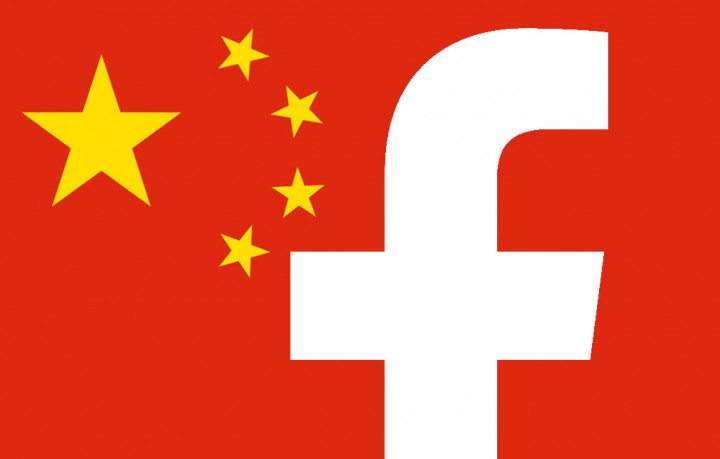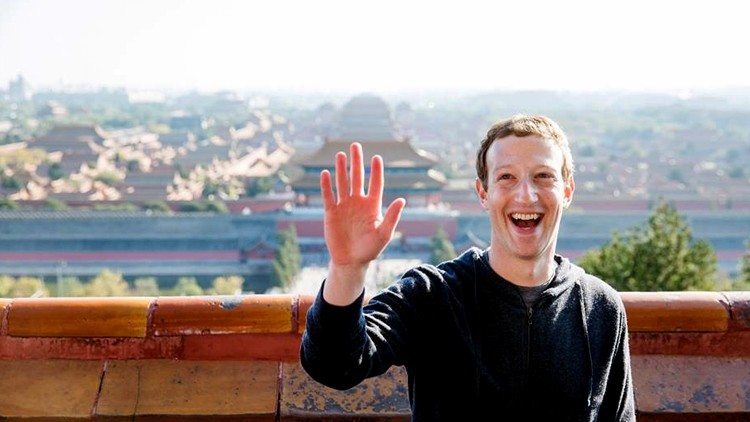
Facebook founder Mark Zuckerberg has a special interest in China. It’s the one major market his social network has yet to penetrate, and – apparently not satisfied with dominating most of the world – he’s been making moves towards China for years. He’s met with high-level government officials. He’s pulled some high-profile PR stunts. He’s learning Mandarin and for several years has made well-wishing videos targeted at Chinese net users during Spring Festival. Recently, reports have suggested Facebook is working on a censorship tool, presumably to make its service more appealing to Chinese regulators.
To that end, Facebook might do well to take some cues from WeChat, the social media platform that does dominate the Chinese market. A recent study revealed precisely how WeChat approaches censorship on its platform, which includes domestic and global users. It’s pretty complicated (as you might expect) but basically:
- The system differentiates between China-based and international users. China-based users get censored more heavily, both in their messages and in the content they can see in WeChat’s in-app browser.
- The censorship is quiet: users no longer get notifications when their message has been deleted because it included a censored keyword.
- Censorship is dynamic, with keywords being added to and subtracted from the block list in response to current events.
To have even a prayer of entering China, Facebook would need to offer something similar. Dynamic keyword blocking would likely be especially important, as Chinese authorities will want to prevent the spread of some current events topics before they’ve had time to go viral. But at the same time, Facebook can’t risk annoying its international user base with China-mandated censorship. It’s reportedly developing geographical block tools, but WeChat’s approach – identifying Chinese users and censoring their content regardless of where they are in the world likely would hold more appeal for Chinese authorities.
In other words: Facebook should copy WeChat. Except…
Facebook shouldn’t enter China

Zuck in Beijing. Image credit: Zuckerberg’s Facebook.
I have said this before, and so have a lot of other people. But it bears repeating: Facebook entering China is a bad idea for the following reasons:
- PR backlash. Every move Facebook makes to kowtow to Beijing hurts its image in key markets like the US. If it enters China and starts actively censoring content and turning user data over to the government (as it would be legally required to do) that might make the Chinese government happy, but it’ll make almost everyone else angry. And every time something censorship-worthy happens or an activist is jailed, Facebook’s name will be invoked in the Western media as an enabler of the authoritarianism.
- Outdated product. Facebook’s web-first platform looks more like Renren and Kaixin001 than WeChat, and that should be a concern, because Renren is about as passé in China as MySpace is in the US. WeChat, China’s dominant social network, is a mobile-first hub where you can do everything from chatting with friends to playing games to paying your dry cleaning bill right in the app. Facebook requires a completely separate app to even chat with friends, and it doesn’t do a tenth of the things WeChat does. Aside from the novelty factor, why would Chinese users want Facebook? They already have something way better.
- Absurdly strong competition. Speaking of something way better, it’s unlikely that Tencent – which has dominated the social media scene in China since before you’d even heard of the term “social media” – would just sit back and let Facebook grab up its market share anyway. Even assuming Facebook could get government approval and launch a product that was genuinely competitive with WeChat (neither of which is likely), Tencent has deep roots and a huge network of partners in China it could call on to offer services and experiences through its app that Facebook simply could not equal.
All of that’s probably moot, considering that there’s little reason for China’s government to allow Facebook in anyway. But if, by some strange stroke of luck, it does find itself launching in China, I think that’s a day Mark Zuckerberg may live to regret.
This is an opinion piece.
This post https://www.techinasia.com/wechat-censorship-lays-blueprint-facebook-enter-china appeared first on Tech in Asia.
from Tech in Asia https://www.techinasia.com/wechat-censorship-lays-blueprint-facebook-enter-china
via IFTTT
No comments:
Post a Comment